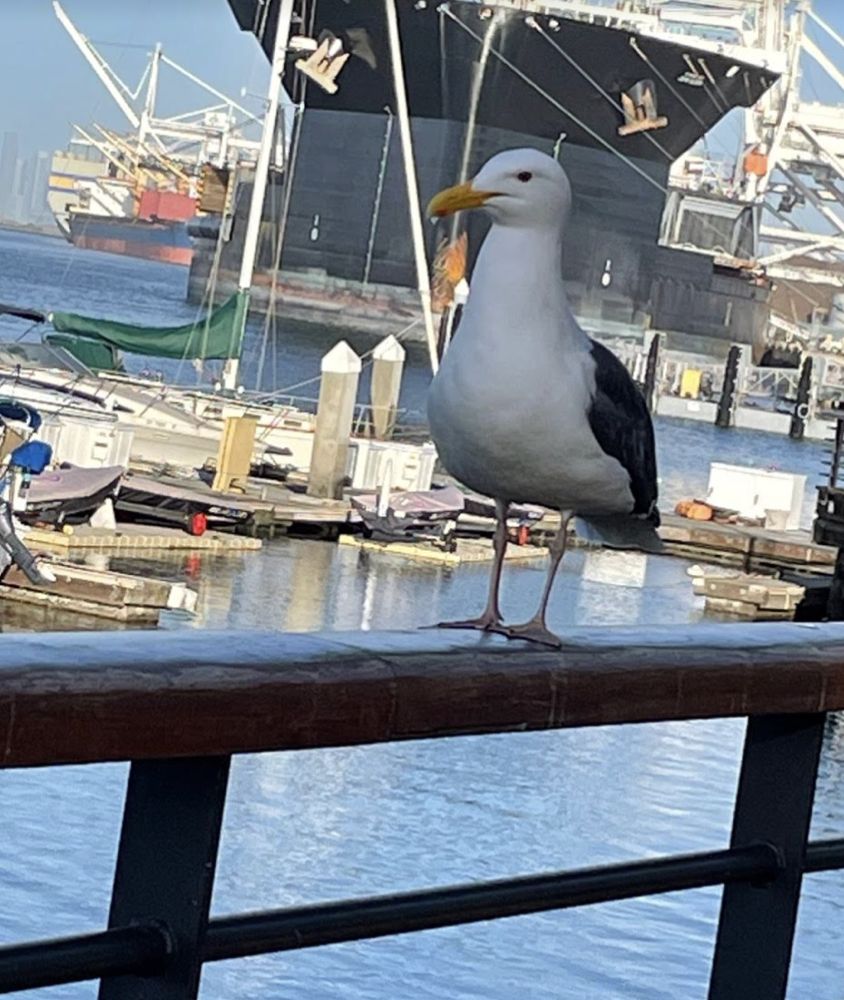Tri-State Bird Rescue & Research Inc., a nonprofit organization founded in 1976, has been responding to wildlife in the aftermath of oil spills and rehabilitating injured, orphaned or contaminated native wild birds for its entire history. Global Risk Solutions’ Peter Wiswell is bicycling across America to raise awareness and funds to support Tri-State, in an event called Wheels for Wings. Tri-State’s executive director, Lisa Smith, spoke with GRS recently to offer an inside perspective on the organization.
Tri-State Bird Rescue & Research is known for its oiled wildlife response. What does Tri-State focus on in between environmental incidents?
We’re quite busy year-round. We have two main programs. One is our Oiled Wildlife Response Team, and the other is our Wild Bird Clinic. The clinic is open 365 days a year and on average treats 3,000 birds every year. We take care of injured and orphaned birds in a 40-county area around northern Delaware, where we’re headquartered. That includes Maryland, Pennsylvania, New Jersey and the Delmarva Peninsula. Right now, it’s baby bird season, so we’re treating more than 150 birds in-house at the moment – ducklings, songbirds and many others.
On our response team side, which treats oiled wildlife, we’re focused on events in the mid-Atlantic region, but we travel as far north as Canada’s maritime provinces and into the Caribbean. When there is no active oil spill, we’re often working on contracts with different government and private-sector organizations so we can prepare to respond. There are also regular meetings and some training activities with Regional Response Teams, multi-agency coordinating groups that include the U.S. Coast Guard and Environmental Protection Agency. We also create wildlife response plans and conduct training with states and industry. With the pandemic, we’ve done some webinar training sessions in the past year.
When we’re not responding to an environmental incident, we’re all about preparedness.
Is most of Tri-State’s work performed by volunteers? What skills or experience does Tri-State require to become a volunteer?
We have an incredible group of volunteers who supplement our 17 permanent, year-round staff. Over the course of a year, Tri-State’s volunteers donate more than 20,000 hours of time – that’s equivalent to having nine full-time staff. It’s been hard with the pandemic limiting hands-on work, but our volunteers have been doing terrific work by transporting birds to us and other off-site support work. Some of our volunteers have been with us for 10 to 15 years and have become quite highly trained. We are planning on having volunteers onsite again in September, and possibly sooner. Our next training session for new volunteers is planned for early next year.
How does Tri-State take its learnings during the year and apply them to environmental response efforts?
After an event, we always have an after-action meeting to review what worked and see where we can improve. We sometimes see a need to adjust our standard operating procedures and protocols, and a frequent question is, “Do we need additional equipment?” It’s a continual loop that we make as part of our preparedness.
Peter Wiswell’s Wheels for Wings ride across America is an amazing way to raise awareness and funds. Has anything like this been done before for Tri-State?
We’ve had other kinds of fundraisers, but nobody has done anything quite like this. Through Wheels for Wings, we are hoping to raise at least $75,000 for a new truck for our Oiled Wildlife Response Team. We’re about halfway there, and every bit helps.
How does Tri-State plan to use the funds raised from Wheels for Wings?
As soon as we have the funds, Tri-State will purchase a new truck. Our response team’s existing truck is a 2005, and it’s hanging in there, but we need a new one. Our team does have some specifications. We’ll need a truck that is four-wheel-drive, with a crew cab and four doors, a full-size bed and a cap.
What do you and the staff find most rewarding about Tri-State’s work and partnerships with sponsors and communities?
It’s rewarding to be able to provide care for wild birds and educate people about the impact humans can have on wildlife. We’re grateful that so many people care about wildlife and are willing to support our mission.
For more information, please visit www.tristatebird.org and follow Peter Wiswell’s journey at www.globalrisksolutions.com and on social media.
To follow his progress during Wheels for Wings, click here to see a daily tracker.
To contribute to Wheels for Wings, please visit https://tristatebird.givingfuel.com/wheelsforwings.

